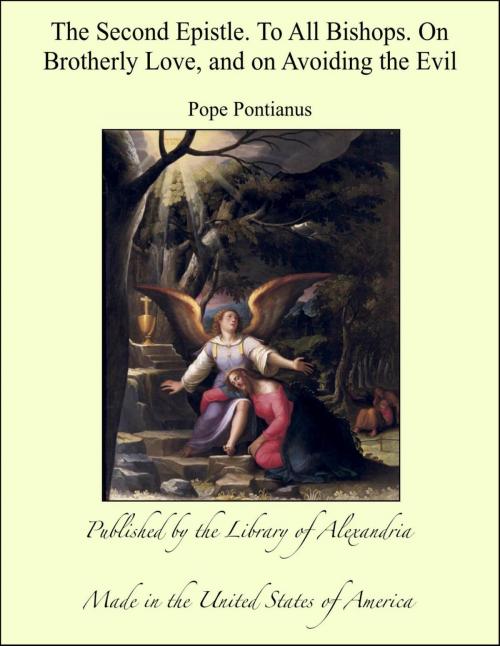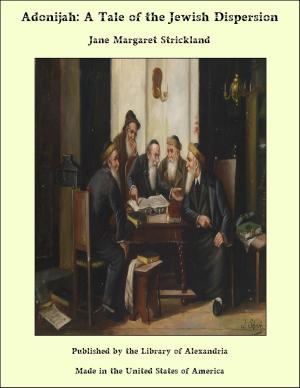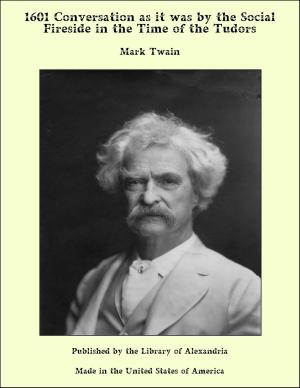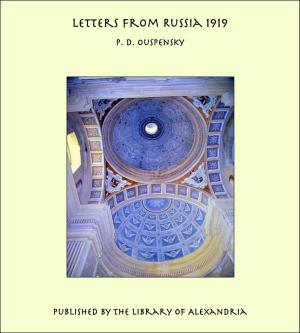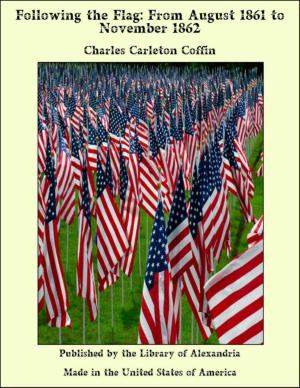The Second Epistle. To All Bishops. On brotherly Love, and on Avoiding the Evil
Nonfiction, Religion & Spirituality, New Age, History, Fiction & Literature| Author: | Pope Pontianus | ISBN: | 9781465574671 |
| Publisher: | Library of Alexandria | Publication: | March 8, 2015 |
| Imprint: | Language: | English |
| Author: | Pope Pontianus |
| ISBN: | 9781465574671 |
| Publisher: | Library of Alexandria |
| Publication: | March 8, 2015 |
| Imprint: | |
| Language: | English |
Pontianus, bishop of the holy and universal Church, to all who worship the Lord aright, and love the divine worship, greeting. Glory to God in the highest, and on earth peace to men of good will. (1) These words, most beloved, are not the words of men, but of angels; and they were not devised by human sense, but were uttered by angels at the birth of the Saviour. And from these words it can be understood without doubt by all that peace is given by the Lord, not to men of evil will, but to men of good will. Whence the Lord, speaking by the prophet, says: “How good is God to Israel, even to such as are of a clean heart! But as for me, my feet were almost gone; my steps had well-nigh slipped: for I was envious at the unrighteous, when I saw the prosperity of the wicked.” (2) Of the good, however, the Truth says in His own person, “Blessed are the pure in heart, for they shall see God.” (3) And they are not the pure in heart who think evil things, or things hurtful to their brethren; for he who is the faithful man devises nothing evil. The faithful man, accordingly, loves rather to hear things which are becoming, than to speak things which are not becoming. And if any one is faithful, let him see to it that he speak no evil, and lay no snares in the way of any one. In this, then, are the children of God distinguished from the children of the devil. For the children of God always think and strive to do things which are of God, and give help unceasingly to their brethren, and wish to injure no one. But, on the other hand, the children of the devil are always meditating things evil and hurtful, because their deeds are evil. And of them the Lord, speaking by the prophet Jeremiah, says: “I will utter my judgments against them touching all their wickedness.” (4) “Wherefore I will yet plead with you, saith the Lord; and with your children’s children will I plead.” (5) “Behold, I frame evil against you, and devise a device against you.” (6) These things, brethren, are greatly to be feared, and to be guarded against by all; for the man on whom the judgment of God may fall will not depart unhurt. And therefore let every one see to it carefully that he neither contrive nor do against a brother what he would not wish to have to endure himself. And let not the man of faith come under the suspicion even of saying or doing what he would not wish to have to endure himself. Wherefore persons suspected, or hostile or litigious, and those who are not of good conversation, or whose life is reprehensible, and those who do not hold and teach the right faith, have been debarred from being either accusers or witnesses by our predecessors with apostolic authority; and we too remove them from that function, and exclude them from it in times to come, lest those lapse wilfully whom we ought to keep in and save; lest not only (which may God forbid!) the predicted judgment of God should fall upon both, but we also should perish (which may God forbid!) through their fault. For it is written, “Have they made thee the master of a feast? Take care for them, that thou mayst be merry on their account, and receive as thy crown the ornament of esteem, and find approbation of thine election.” (1) For the evil word affects the heart, out of which proceed these four objects, good and evil, life and death; and the tongue in its assiduous action is what determines these.
Pontianus, bishop of the holy and universal Church, to all who worship the Lord aright, and love the divine worship, greeting. Glory to God in the highest, and on earth peace to men of good will. (1) These words, most beloved, are not the words of men, but of angels; and they were not devised by human sense, but were uttered by angels at the birth of the Saviour. And from these words it can be understood without doubt by all that peace is given by the Lord, not to men of evil will, but to men of good will. Whence the Lord, speaking by the prophet, says: “How good is God to Israel, even to such as are of a clean heart! But as for me, my feet were almost gone; my steps had well-nigh slipped: for I was envious at the unrighteous, when I saw the prosperity of the wicked.” (2) Of the good, however, the Truth says in His own person, “Blessed are the pure in heart, for they shall see God.” (3) And they are not the pure in heart who think evil things, or things hurtful to their brethren; for he who is the faithful man devises nothing evil. The faithful man, accordingly, loves rather to hear things which are becoming, than to speak things which are not becoming. And if any one is faithful, let him see to it that he speak no evil, and lay no snares in the way of any one. In this, then, are the children of God distinguished from the children of the devil. For the children of God always think and strive to do things which are of God, and give help unceasingly to their brethren, and wish to injure no one. But, on the other hand, the children of the devil are always meditating things evil and hurtful, because their deeds are evil. And of them the Lord, speaking by the prophet Jeremiah, says: “I will utter my judgments against them touching all their wickedness.” (4) “Wherefore I will yet plead with you, saith the Lord; and with your children’s children will I plead.” (5) “Behold, I frame evil against you, and devise a device against you.” (6) These things, brethren, are greatly to be feared, and to be guarded against by all; for the man on whom the judgment of God may fall will not depart unhurt. And therefore let every one see to it carefully that he neither contrive nor do against a brother what he would not wish to have to endure himself. And let not the man of faith come under the suspicion even of saying or doing what he would not wish to have to endure himself. Wherefore persons suspected, or hostile or litigious, and those who are not of good conversation, or whose life is reprehensible, and those who do not hold and teach the right faith, have been debarred from being either accusers or witnesses by our predecessors with apostolic authority; and we too remove them from that function, and exclude them from it in times to come, lest those lapse wilfully whom we ought to keep in and save; lest not only (which may God forbid!) the predicted judgment of God should fall upon both, but we also should perish (which may God forbid!) through their fault. For it is written, “Have they made thee the master of a feast? Take care for them, that thou mayst be merry on their account, and receive as thy crown the ornament of esteem, and find approbation of thine election.” (1) For the evil word affects the heart, out of which proceed these four objects, good and evil, life and death; and the tongue in its assiduous action is what determines these.
